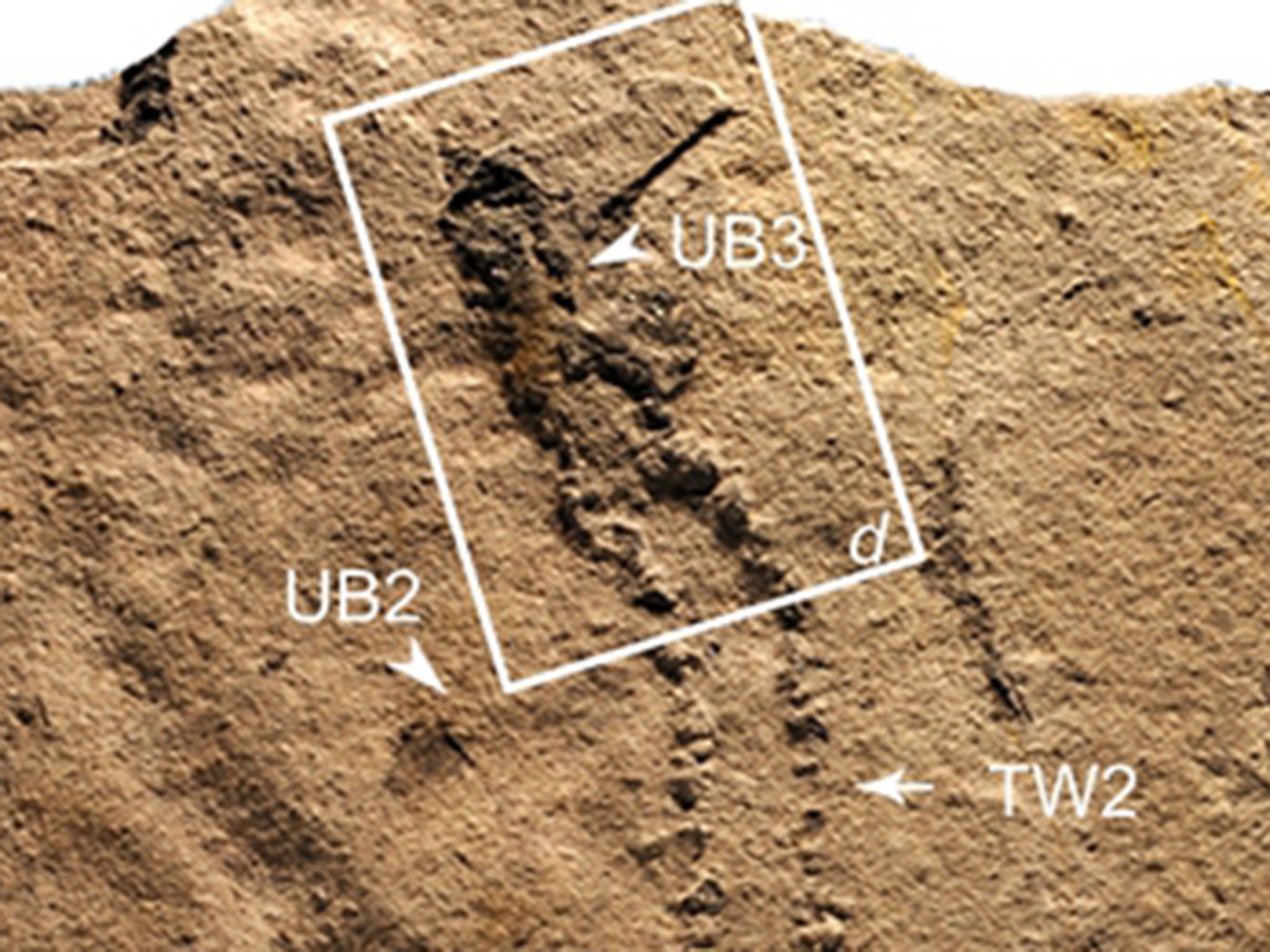Scientists discover 'oldest footprints on Earth' in southern China dating back 550 million years
Experts believe tracks made by mystery animal are earliest ever uncovered

Your support helps us to tell the story
From reproductive rights to climate change to Big Tech, The Independent is on the ground when the story is developing. Whether it's investigating the financials of Elon Musk's pro-Trump PAC or producing our latest documentary, 'The A Word', which shines a light on the American women fighting for reproductive rights, we know how important it is to parse out the facts from the messaging.
At such a critical moment in US history, we need reporters on the ground. Your donation allows us to keep sending journalists to speak to both sides of the story.
The Independent is trusted by Americans across the entire political spectrum. And unlike many other quality news outlets, we choose not to lock Americans out of our reporting and analysis with paywalls. We believe quality journalism should be available to everyone, paid for by those who can afford it.
Your support makes all the difference.Scientists in China have discovered what they claim are the oldest fossilised animal footprints ever found.
The parallel tracks were formed in mud up to 551 million years ago in southern China’s Yangtze Gorges.
They potentially date to 10 million years before the Cambrian Explosion, when arthropod and other animal life rapidly flourished, and when creatures with pairs of legs capable of leaving such footprints were thought to have arisen.
Scientists from the Chinese Academy of Sciences’ Nanjing Institute of Geology and Palaeontology, along with colleagues from Virginia Tech in the US, studies the tracks and burrows found within part of the Denying Formation, a fossil-rich area near the Yangtze River.
Asked how the teams knew the impressions were footprints, Dr Shuhai Xiao of Virginia Tech told The Independent: “If an animal makes footprints, the footprints are depressions on the sediment surface, and the depressions are filled with sediments from the overlying layer.
“This style of preservation is distinct from other types of trace fossils, for example, tunnels or burrows, or body fossils.
“The footprints are organised in two parallel rows, as expected if they were made by animals with paired appendages. Also, they are organised in repeated groups, as expected if the animal had multiple paired appendages.”
Previously, no evidence of limbed animals had been discovered that pre-dated the Cambrian Explosion, the sudden surge in diversity that occurred on Earth around 510 to 540 million years ago.
Unusually, the footprints of the creature in question appear to be irregular and disorganised, suggesting it was somewhat clumsy.
In the paper published on the findings, researchers said tracks bore a resemblance to fossil prints recorded in Dunure and Montrose in Scotland, thought to be between 419 and 358 million years old.
The new find does not however provide scientists with enough information to determine what kind of animal the footprints belonged to.
“We explicitly stated in the paper that we do not know exactly what animals made these footprints, other than that the animals must have been bilaterally symmetric because they had paired appendages,” Dr Xiao added.
“At least three living groups of animals have paired appendages – arthropods such as bumble bees, annelids such as bristle worms, and tetrapods such as humans.
“Arthropods and annelids, or their ancestors, are possibilities; and modern arthropods and annelids provide appropriate analogue to guide our interpretation of these fossils.
“But unless the animal died and preserved next to its footprints, it is hard to say with confidence who made the footprints.”
Join our commenting forum
Join thought-provoking conversations, follow other Independent readers and see their replies
0Comments